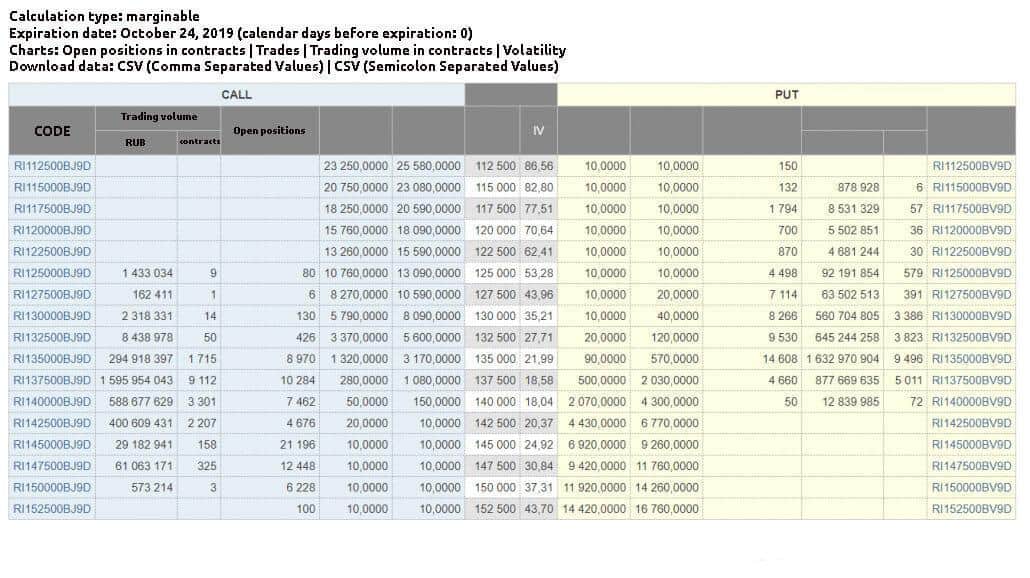
If you're looking for penny stocks with dividends, then you may want to check out the Costain Group, which pays a very high dividend. The projected dividend yield for 2021 is 5.5 per cent. The stock's dividend yield is not the only reason for you to buy it. This stock also offers a future price to earnings ratio of 8x, making it an excellent investment opportunity. Despite its losses last year it will see increased infrastructure spending in the United Kingdom.
TD Ameritrade offers penny stocks
TD Ameritrade is not able to offer penny stock trading, but it offers a number of other services such as research tools, analysis programs, and real-time streaming data. These services can help you to reduce your risk while also keeping you on top of market movements. You might want to use a different broker if you are a day trader who is short-biased.
TradeStation is a free online brokerage that does not charge commissions. TradeStation offers traders over 15,000 penny stocks to choose from. Depending on the needs of traders, you can open a TS GO or TS Select accounts. Both have a $2,000 minimum deposit. It works on both web and desktop, and provides real-time OTC update. You can also use the platform for stock price tracking using historical data dating back to 50 years.

TD Ameritrade, one of the most popular online brokerages, allows you to browse over 10,000 penny stocks for a minimum initial deposit. You can use the site's stock screen to compare historical earnings per share of penny stocks.
TD Ameritrade also offers research tools
Although TD Ameritrade does not offer penny stock trading without commissions, it does provide a host of research tools for penny stocks, including analysis software and real-time streaming data. These research tools can help reduce risk and help you find the best penny stocks. The thinkorswim earning assessment tool is one of the most useful tools for evaluating the worth of penny stock companies. This tool takes into account volatility and price movement to evaluate the value of penny stocks.
TD Ameritrade provides traders with a range of tools including a database of financial and market information. You can also access a range of trading services such as real-time streaming data or market highlights. Mobile app from TD Ameritrade allows customers to track their portfolios, see real-time data from the markets, and manage their trades using their mobile devices. TD Ameritrade also offers a secure online trading environment, which means that users can trade with confidence.
TD Ameritrade provides research tools for penny stocks
If you're looking for a trading platform that supports penny stocks with dividends, TD Ameritrade is worth a look. They offer extensive research tools, analysis software, and real-time streaming data that can help you mitigate your risks and find penny stocks that are worth your time. You can use the thinkorswim earning tool to calculate a penny stock’s value. This software analyzes volatility and price action to determine whether a stock is worthwhile.

TD Ameritrade's tools are geared toward experienced investors, but beginners can also use the free platform. This platform allows you to access the Pink Open Market which contains over 10,000 OTC stocks. It also has a low rate of commission. It also offers a premium thinkorswim application that allows users to access a range of trading tools as well as live charts to monitor stocks. TD Ameritrade offers research reports from Thomson Reuters and TipRanks that can help investors assess a company's worth.
FAQ
How do I choose an investment company that is good?
You should look for one that offers competitive fees, high-quality management, and a diversified portfolio. The type of security in your account will determine the fees. Some companies have no charges for holding cash. Others charge a flat fee each year, regardless how much you deposit. Some companies charge a percentage from your total assets.
It is also important to find out their performance history. If a company has a poor track record, it may not be the right fit for your needs. You want to avoid companies with low net asset value (NAV) and those with very volatile NAVs.
It is also important to examine their investment philosophy. To achieve higher returns, an investment firm should be willing and able to take risks. If they're unwilling to take these risks, they might not be capable of meeting your expectations.
Why is it important to have marketable securities?
The main purpose of an investment company is to provide investors with income from investments. This is done by investing in different types of financial instruments, such as bonds and stocks. These securities have attractive characteristics that investors will find appealing. These securities may be considered safe as they are backed fully by the faith and credit of their issuer. They pay dividends, interest or both and offer growth potential and/or tax advantages.
It is important to know whether a security is "marketable". This refers to how easily the security can be traded on the stock exchange. A broker charges a commission to purchase securities that are not marketable. Securities cannot be purchased and sold free of charge.
Marketable securities include corporate bonds and government bonds, preferred stocks and common stocks, convertible debts, unit trusts and real estate investment trusts. Money market funds and exchange-traded money are also available.
These securities can be invested by investment firms because they are more profitable than those that they invest in equities or shares.
How are securities traded
The stock market allows investors to buy shares of companies and receive money. Companies issue shares to raise capital by selling them to investors. Investors then sell these shares back to the company when they decide to profit from owning the company's assets.
Supply and Demand determine the price at which stocks trade in open market. The price goes up when there are fewer sellers than buyers. Prices fall when there are many buyers.
You can trade stocks in one of two ways.
-
Directly from the company
-
Through a broker
Is stock marketable security?
Stock can be used to invest in company shares. You do this through a brokerage company that purchases stocks and bonds.
You can also directly invest in individual stocks, or mutual funds. In fact, there are more than 50,000 mutual fund options out there.
The key difference between these methods is how you make money. Direct investment earns you income from dividends that are paid by the company. Stock trading trades stocks and bonds to make a profit.
In both cases, ownership is purchased in a corporation or company. However, if you own a percentage of a company you are a shareholder. The company's earnings determine how much you get dividends.
Stock trading gives you the option to either short-sell (borrow a stock) and hope it drops below your cost or go long-term by holding onto the shares, hoping that their value increases.
There are three types: put, call, and exchange-traded. Call and put options give you the right to buy or sell a particular stock at a set price within a specified time period. ETFs, also known as mutual funds or exchange-traded funds, track a range of stocks instead of individual securities.
Stock trading is very popular since it allows investors participate in the growth and management of companies without having to manage their day-today operations.
Although stock trading requires a lot of study and planning, it can provide great returns for those who do it well. You will need to know the basics of accounting, finance, and economics if you want to follow this career path.
What's the role of the Securities and Exchange Commission (SEC)?
The SEC regulates securities exchanges, broker-dealers, investment companies, and other entities involved in the distribution of securities. It also enforces federal securities laws.
What is a bond?
A bond agreement is an agreement between two or more parties in which money is exchanged for goods and/or services. It is also known simply as a contract.
A bond is usually written on a piece of paper and signed by both sides. This document contains information such as date, amount owed and interest rate.
A bond is used to cover risks, such as when a business goes bust or someone makes a mistake.
Bonds are often combined with other types, such as mortgages. This means that the borrower has to pay the loan back plus any interest.
Bonds can also be used to raise funds for large projects such as building roads, bridges and hospitals.
The bond matures and becomes due. The bond owner is entitled to the principal plus any interest.
Lenders are responsible for paying back any unpaid bonds.
How can people lose money in the stock market?
Stock market is not a place to make money buying high and selling low. It is a place where you can make money by selling high and buying low.
The stock exchange is a great place to invest if you are open to taking on risks. They may buy stocks at lower prices than they actually are and sell them at higher levels.
They expect to make money from the market's fluctuations. They could lose their entire investment if they fail to be vigilant.
Statistics
- US resident who opens a new IBKR Pro individual or joint account receives a 0.25% rate reduction on margin loans. (nerdwallet.com)
- Even if you find talent for trading stocks, allocating more than 10% of your portfolio to an individual stock can expose your savings to too much volatility. (nerdwallet.com)
- For instance, an individual or entity that owns 100,000 shares of a company with one million outstanding shares would have a 10% ownership stake. (investopedia.com)
- Individuals with very limited financial experience are either terrified by horror stories of average investors losing 50% of their portfolio value or are beguiled by "hot tips" that bear the promise of huge rewards but seldom pay off. (investopedia.com)
External Links
How To
How to Trade Stock Markets
Stock trading can be described as the buying and selling of stocks, bonds or commodities, currency, derivatives, or other assets. The word "trading" comes from the French term traiteur (someone who buys and sells). Traders trade securities to make money. They do this by buying and selling them. This is the oldest type of financial investment.
There are many methods to invest in stock markets. There are three types of investing: active (passive), and hybrid (active). Passive investors simply watch their investments grow. Actively traded traders try to find winning companies and earn money. Hybrid investors combine both of these approaches.
Passive investing involves index funds that track broad indicators such as the Dow Jones Industrial Average and S&P 500. This strategy is extremely popular since it allows you to reap all the benefits of diversification while not having to take on the risk. All you have to do is relax and let your investments take care of themselves.
Active investing is the act of picking companies to invest in and then analyzing their performance. The factors that active investors consider include earnings growth, return of equity, debt ratios and P/E ratios, cash flow, book values, dividend payout, management, share price history, and more. Then they decide whether to purchase shares in the company or not. If they feel that the company is undervalued, they will buy shares and hope that the price goes up. On the other hand, if they think the company is overvalued, they will wait until the price drops before purchasing the stock.
Hybrid investing is a combination of passive and active investing. For example, you might want to choose a fund that tracks many stocks, but you also want to choose several companies yourself. This would mean that you would split your portfolio between a passively managed and active fund.